What Is Conservation Travel: Traveling With Purpose
October 2, 2023
Travel, for some of us, is in our blood. We need to see, explore, learn, and experience different cultures. And, within that is the opportunity to focus on conservation. Conservation travel (or ecotourism) supports preserving and protecting nature, culture, and wildlife. Our team is passionate about this form of travel. Through our experiences on safaris and exploring remote locations, we have learned that your trip can fulfill your travel desires, help the local economy, and protect its resources at your destination.
What Is Conservation Travel, And What Does It Look Like?
At first thought, the term conservation travel might have you thinking about saving animals—and that is indeed a piece of it, but what we are really talking about here is people, communities, and the general respect for the environment and this world we call home.
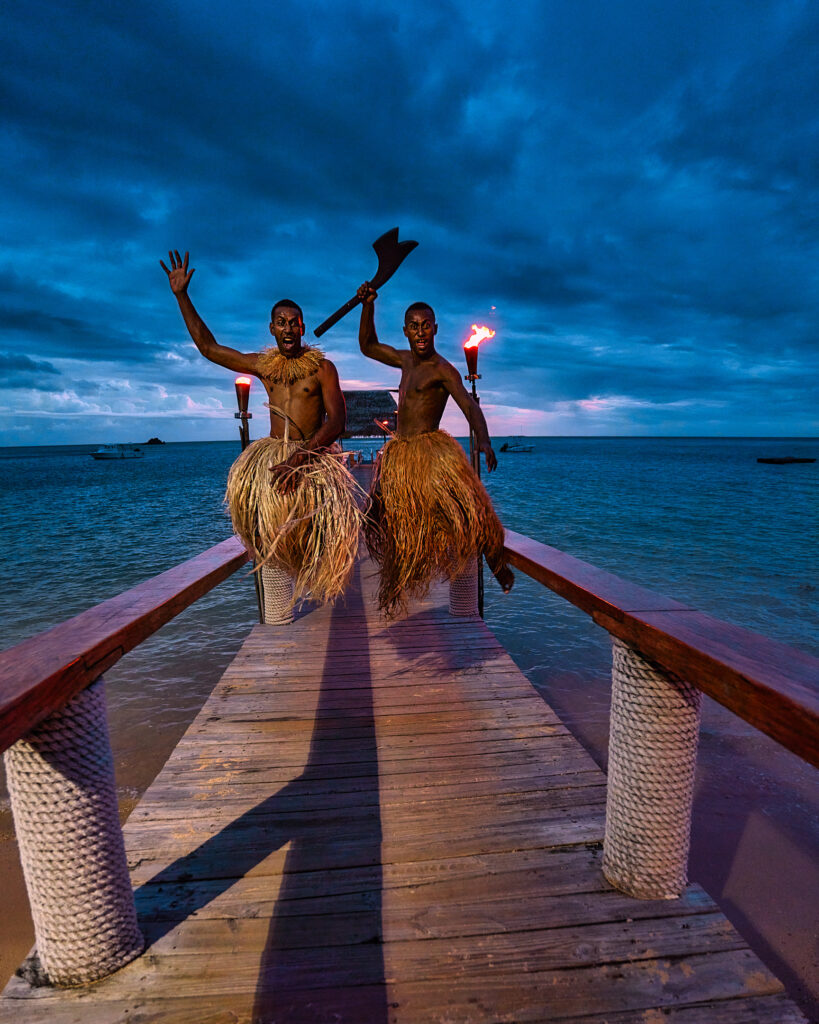
Photo by Dena Meeder Photography
The People
When we travel, we are putting money into local economies. When we think of some of our favorite destinations like Fiji, tourism is responsible for around 40% of the GDP (and employs approximately 40,000 people directly). In comparison, tourism accounts for about 2.9% of the GDP in the US. Those numbers illustrate how many people rely on this industry for their livelihood. When you spend your money in one of these remote locations, you are helping the local economy thrive.
The Communities
When you travel to these destinations, you are looking for more than just awe-inspiring photos to share with friends. Connecting with the local community, learning about their culture, and having conversations with locals can help to spread awareness of their cultural heritage and information that may have otherwise been forgotten. Eco-tourists should do cultural research before embarking on their trips. Learning acceptable clothing, local taboos, what sort of cuisine is served, and other cultural tips can help you connect with the people there. Respecting and honoring local traditions is just as much a part of being an eco-tourist as joining a conservation tour. And, while Fiji’s tourism might directly employ 40,000 people, they indirectly employ over 115,000—so spending your money at locally-owned businesses and places where locals are employed, treated well, and respected is one way to directly impact someone’s life.
Environmental Responsibility
Whether you are booking tours through companies that give a portion back to the environment or staying in a fully sustainable resort, there is a lot that tourists can do to be environmentally responsible. One thing that everyone can do is research the local area. Similar to cultural differences, there are some things travelers are typically not aware of when exploring a new place. As just one example, when it comes to snorkeling near a reef, you should never touch the reef itself. In the past, travelers have taken chunks of coral home. This is unhealthy for the coral and all of the animals that rely on it and disrespectful to both the environment and the locals. Allowing yourself to enjoy these tours as a steward of the environment while doing no harm is an excellent step in eco-tourism.
How The Right Accommodations Make A Difference
We are constantly amazed by hotels, resorts, and other travel experiences that go above and beyond to conserve and protect the local areas they are in. Supporting businesses that take these steps puts money right into the ecotourism industry and shows the country that more people want to work toward travel sustainably. It’s like a domino effect—when one of these destinations finds success and support, others will follow. Here are some of our favorite places doing amazing things in their local areas.
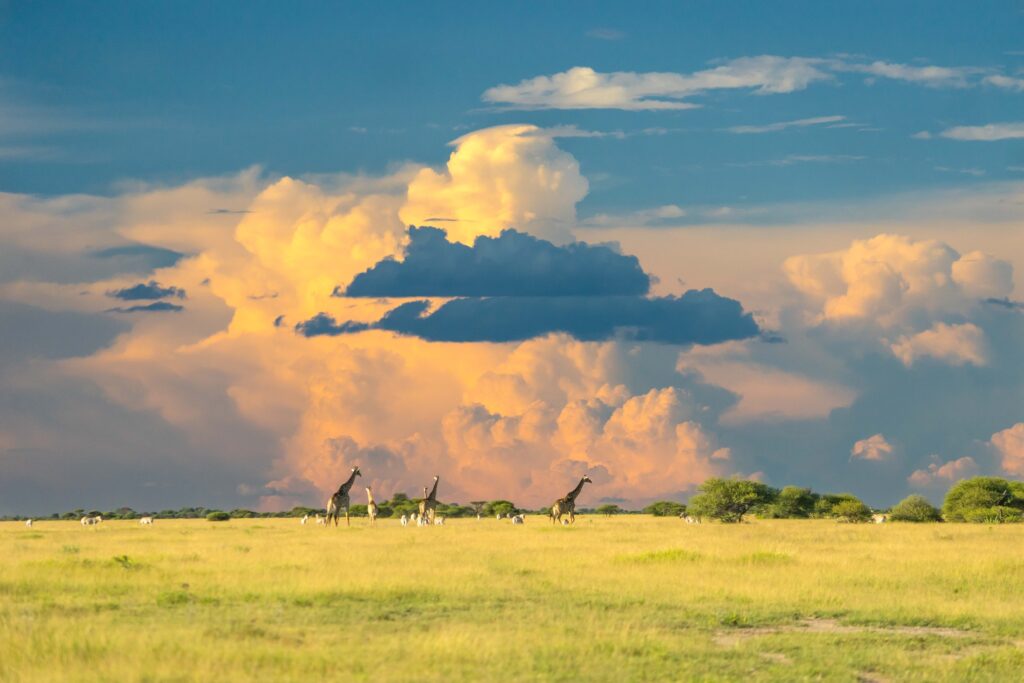
Imvelo Safari Lodges | Africa
Africa is a world leader in conservation travel. You can find many beautiful examples of resorts working with their local community and wildlife. This family of lodges believes that “tourism, conservation, and community can be mutually beneficial.” The Imvelo Safari Lodges cultivate opportunities for tourists and donors alike to make an impact by helping to employ locals in their lodges communities and create opportunities for wildlife conservation—by joining in on one of their safaris, you are making a direct impact in environmental sustainability.
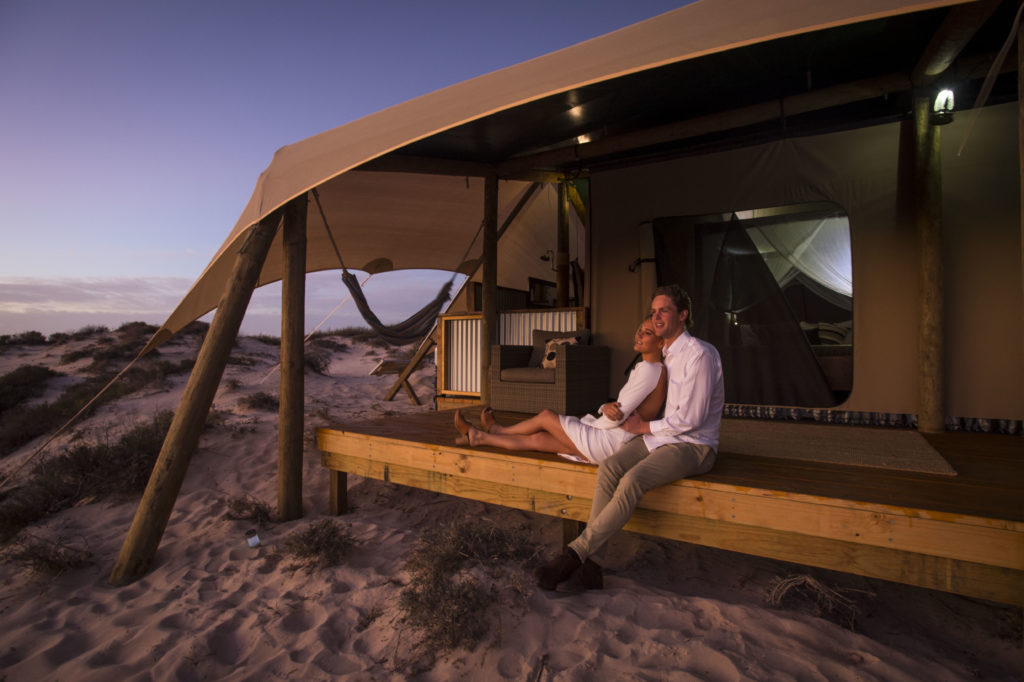
Sal Salis | Australia
Situated near the Ningaloo Reef, this luxury resort takes on the responsibility of enhancing the environment with each guest’s stay. Their accommodations are almost 100% solar-powered, stocked with chemical-free linens, and built above the ground to protect the flora and fauna below. They also offer several other environmentally conscious perks like a direct partnership with Western Australia’s Park Service which benefits from 5% of their profits.
Nayara Tented Camp | Costa Rica
Nestled in Arenal Volcano National Park, the Nayara Tented Camp perfectly combines luxury and environmental impact. Their work involves planting native plant species back in the rainforest. They also employ locals and provide free early childhood education to their children. Plus, their team creates delicious food from local resources and is consistently working to lessen their environmental impact. With stunning accommodations, lush surroundings, and activities perfect for any adventure traveler, it’s no wonder this is one of our favorite eco-friendly resorts.
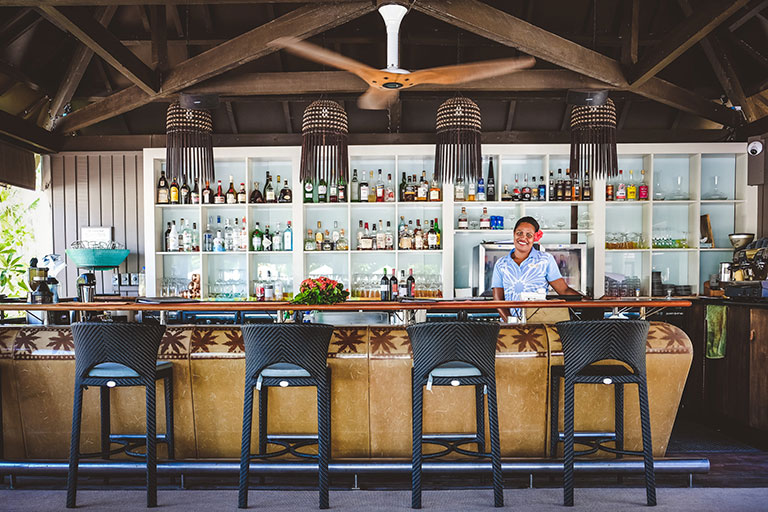
Vomo Island | Fiji
The Vomo Island resort works in partnership with the Mamanuca Environment Society (MES) to protect the local marine environment. They are working towards making their resort completely plastic-free by not allowing plastic straws on the island, bottling drinking water in reusable glass bottles, and commissioning handmade soaps. They even use grey water to care for their local grounds and have several other initiatives in the works. The resort has a marine biologist on-site to monitor their progress and ensure environmental protection in the future. Along with their beautiful rooms and accommodations, you can feel good about your stay at Vomo.
The Kona Village | Hawaii
Located on the big island, this long-time OTA favorite has recently re-opened its doors as a Rosewood property. The Kona Village is 100% sustainable with solar-powered electricity, a reverse-osmosis and wastewater treatment plant, and a zero-waste policy. They employ on-site biologists to guide their decision-making as they continue to lead green tourism.
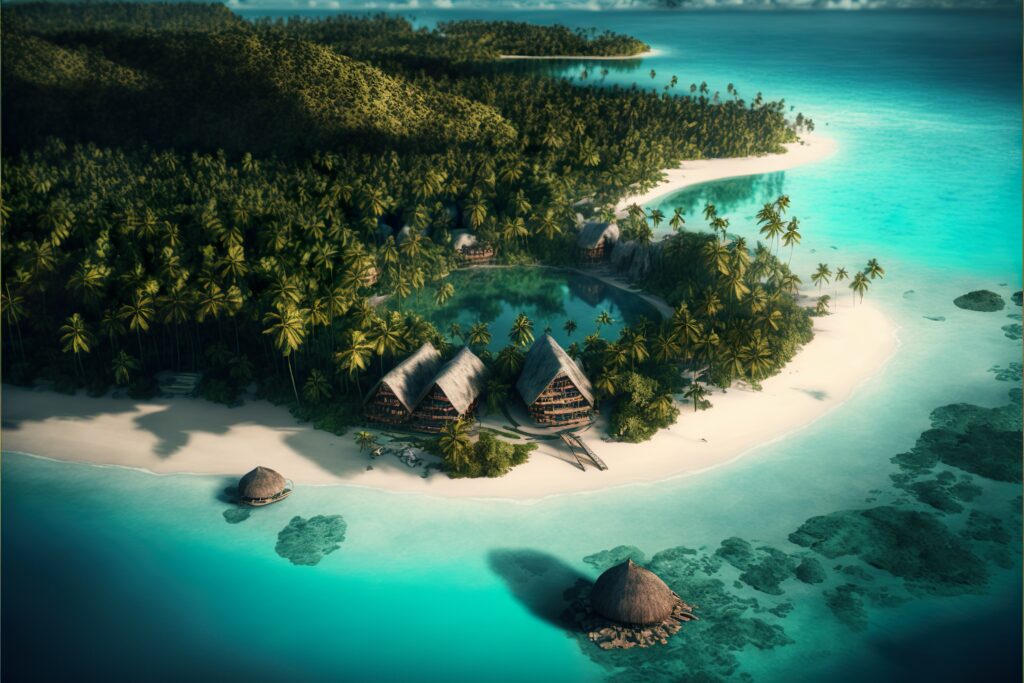
The Brando | Tahiti
The Brando is a remarkable resort for more reasons than one, and we love it for its sustainability efforts. Their efforts are marked by the Tetiaroa Society through four programs led by scientists worldwide. Their first program is conservation, where their team works to conserve the culture and biodiversity of Tetiaroa Island. In the research program, scientists are studying the local ecosystem to build initiatives that will protect it for years to come. They also work with the French Polynesia Education Department to educate students from 8 to 18 years old on the cultural history and local flora and fauna on the island, along with several other educational opportunities for international students. Their final program is for local guides to provide educational tours for resort guests. Alongside all of that, the resort is 60% powered by solar energy and uses sea water air conditioning to cool down its buildings with no environmental impact. There is so much to read about their stewardship. You can find more information here.
Other Ways To Make An Impact
When planning wildlife conservation trips, you can also enjoy excursions that directly impact the environment. Our team has supported the Healesville Sanctuary in Australia, The National Kiwi Hatchery in New Zealand, and several other sanctuaries, safaris, and rewilding efforts worldwide.
When it comes to ethical wildlife tourism, our team knows that there are several ways to make an impact with each decision. Do you have a destination in mind that you would like to make a difference in? Contact our team today to see how we can help you travel with purpose and intention.

 +1 800 554 9059
+1 800 554 9059